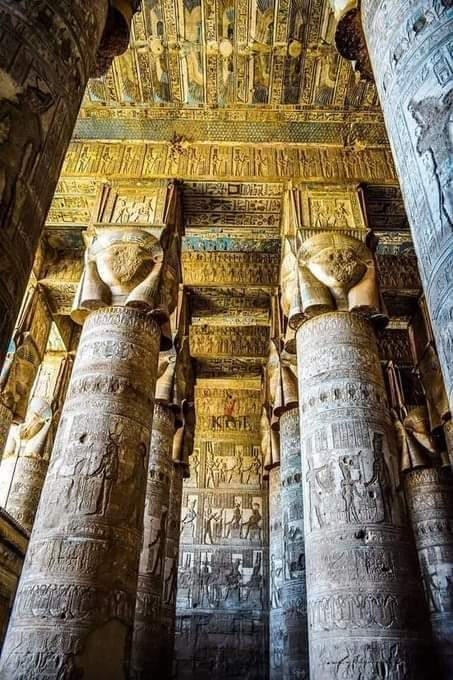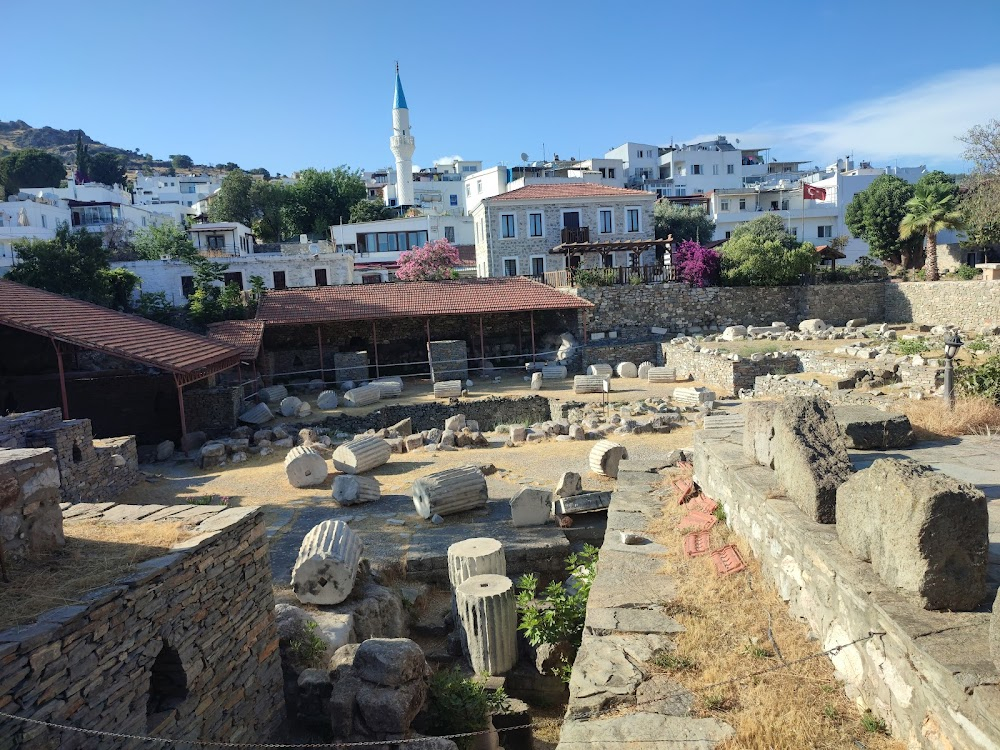Sphinx - Geheimnisse der Geschichte Filming Locations

Where was Sphinx - Geheimnisse der Geschichte filmed? Sphinx - Geheimnisse der Geschichte was filmed in 64 locations across United States, Germany, Egypt, Greece, France, Iraq, Australia, Romania, United Kingdom, Italy, China, Denmark, Greenland, Turkey, Iran, Japan, Israel, Norway and Spain in the following places:
Sphinx - Geheimnisse der Geschichte Filming Locations
Dendera, also spelled Denderah, ancient Iunet 𓉺𓈖𓏏𓊖 “jwn.t”, Tentyris, or Tentyra is a small town and former bishopric in Egypt situated on the west bank of the Nile, about 5 kilometres south of Qena, on the opposite side of the river.
Denmark is a Scandinavian country comprising the Jutland Peninsula and numerous islands. It's linked to nearby Sweden via the Öresund bridge. Copenhagen, its capital, is home to royal palaces and colorful Nyhavn harbor, plus the Tivoli amusement park and the iconic “Little Mermaid” statue. Odense is writer Hans Christian Andersen’s hometown, with a medieval core of cobbled streets and half-timbered houses.
Egypt, a country linking northeast Africa with the Middle East, dates to the time of the pharaohs. Millennia-old monuments sit along the fertile Nile River Valley, including Giza's colossal Pyramids and Great Sphinx as well as Luxor's hieroglyph-lined Karnak Temple and Valley of the Kings tombs. The capital, Cairo, is home to Ottoman landmarks like Muhammad Ali Mosque and the Egyptian Museum, a trove of antiquities.
Germany is a Western European country with a landscape of forests, rivers, mountain ranges and North Sea beaches. It has over 2 millennia of history. Berlin, its capital, is home to art and nightlife scenes, the Brandenburg Gate and many sites relating to WWII. Munich is known for its Oktoberfest and beer halls, including the 16th-century Hofbräuhaus. Frankfurt, with its skyscrapers, houses the European Central Bank.
Giza is an Egyptian city on the west bank of the Nile, near Cairo. The Giza Plateau is home to iconic Egyptian monuments, including 3 tall pyramids built as royal mausoleums around the 26th century B.C. The largest, the Great Pyramid, is King Khufu’s tomb. The Great Sphinx is a vast sculpture of a man’s head on a lion’s body. The Solar Boat Museum displays a restored cedar barge found buried near the Great Pyramid.
Glastonbury is a town in southwest England. It's known for its ancient and medieval sites, many rich in myth. Glastonbury Tor is a tower-topped hill linked to Arthurian legend, overlooking the marshy Somerset Levels. Once said to be King Arthur’s burial place, Glastonbury Abbey is a ruined monastery dating to the 7th century. Nearby, centuries-old Glastonbury Tribunal has a museum with Iron Age artefacts.
Jerusalem is a city in the Southern Levant, on a plateau in the Judaean Mountains between the Mediterranean and the Dead Sea. It is one of the oldest cities in the world, and is considered holy to the three major Abrahamic religions—Judaism, Christianity, and Islam.
Jesi is a comune in the province of Ancona, in the Italian region of Marche. It is an important industrial and artistic center in the floodplain on the left bank of the Esino river, 17 kilometres before its mouth on the Adriatic Sea.
New York City comprises 5 boroughs sitting where the Hudson River meets the Atlantic Ocean. At its core is Manhattan, a densely populated borough that’s among the world’s major commercial, financial and cultural centers. Its iconic sites include skyscrapers such as the Empire State Building and sprawling Central Park. Broadway theater is staged in neon-lit Times Square.
Norway is a Scandinavian country encompassing mountains, glaciers and deep coastal fjords. Oslo, the capital, is a city of green spaces and museums. Preserved 9th-century Viking ships are displayed at Oslo’s Viking Ship Museum. Bergen, with colorful wooden houses, is the starting point for cruises to the dramatic Sognefjord. Norway is also known for fishing, hiking and skiing, notably at Lillehammer’s Olympic resort.
Sphinx - Geheimnisse der Geschichte (1994)
This German format is not a series properly speaking, as it has no permanent cast or script continuity, but presents each time a 45 minutes documentary, usually in part presented as a docudrama (not faction, as close to scientific knowledge as possible, but visually attractive), elaborating a specific historical theme, widely varied, often exotic in the sense of a far time (as far back as prehistoric times) and/or place (around the globe), although some episodes fit together well, chronologically or thematically, but always fit to be watched separately. Usually authentic locations are used, as well as scenes from and/or interviews about the scientific research it is based upon.




